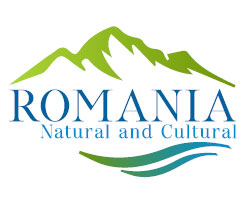Park Highlights
Hiking in Retezat National Park offers countless encounters with breathtaking views and nature at her wildest. Peaks topping the 8,000 ft. mark provide hikers with plenty of challenges. Travelers willing to tackle them will have their efforts well rewarded.
Local communities and cultural sights from around the park area add a special value to that of the landscape and the biodiversity inside the park. The people in the villages of Salasu de Sus, Rau de Mori and Campu lui Neag preserve to this day the traditional lifestyle of the area.
Retezat Park Fast Facts
| Location | Southern Carpathians (Hunedoara county) |
| Size | 94,000 acres |
| Best known for | - its 80 glacial lakes,
including Bucura (area: 8.8 ha./22 acres) and Zanoaga (max. depth: 92ft) - 50 mountain peaks over 2,000 metres / 6,560 ft. - Being Romania's first National Park - established in 1935 |
| Natural features | Alpine and sub-alpine meadows, Deep ravines and ice-scoured parable synclines, Dwarf-pine formations, Glacial lakes |
| Activities | Camping, Cross-country skiing, Hiking / walking / trekking, Mountain biking, Rock climbing, Wildlife watching |
Natural attractions
Over one third of Romania's flora can be found in the Retezat Mountains. High meadows create a haven for rare alpine flora. Long, steep slopes are covered with different types of forest, especially beech, spruce and fir. At the sub-alpine level, slopes shaped by ice are often protected by dwarf pine. The forest line reaches 6,080 ft. with some Spruce adapted to the harsh climate.
More than one quarter of the mountain range is above the 5,760 ft. altitude where timberline and glaciers have created terraced valleys that end in magnificent glacial bays, lakes and waterfalls. Extraordinary passes, gorges, cavernous limestone caves and sinkholes can be found on the South-Eastern part of the mountain range, in the limestone area of the Retezatul Mic (the Small Retezat).
Flora and Fauna
Wildlife enthusiasts will find here 55 species of mammals, including chamois, red and roe deer, wild boar, bear, wolf, fox, and lynx. Otters find themselves at home in the park's rivers. Chaffinch, song thrush, ring ouzel, red-breasted flycatcher, chiffchaff, nutcracker and the rare golden eagle, leaser spotted eagle, eagle owl, pigmy owl, crag martin, scarlet rosefinch, three toed woodpecker, horned lark are among the 120 nesting bird species of Retezat.
Retezat National Park was included in the Important Bird Areas Network. Butterflies are abundant in the park - over 1,100 species; The Retezat Mountains are one of Europe's most important lepidoptera areas.
Attractions not far from Retezat National Park
Corvin Castle - Hunedoara, 35 miles north
Town of Deva, 42 miles north
Sarmisegetusa Regia - Capital of Dacian Kingdom in Orastie Mountains, 51 miles NE
Densus Church, 21 miles north
Town of Alba Iulia , 78 miles NE
Town of Targu Jiu, 75 miles south
Domogled – Valea Cernei National Park
Access to the Park
Northern entrance: villages Carnic, Rausor and Gura Apei
Southern entrance: villages Buta, Cheile Butii and Campusel
How to get to Retezat Park
AirNearest airports to Retezat Mountains National Park are:
Sibiu - 105 miles NE
and Timisoara - 135 miles west
There is mini-bus transportation - seasonal (summertime) service -
from village Ohaba de sub Piatră (5 miles south of Hateg) to Carnic (park northern entrance).
Park southern entrances are accesible by mini-bus from Petrosani (to Buta and Cheile Butii) and from Lupeni (to Campu lui Neag).
National road DN66 / E79 (Hateg -- Targu Jiu) to Santamarie Orla
then right on county road 686D to Rausor
and National road DN66 / E79 (Hateg – Targu Jiu) to Petrosani
then right on county road DN66A to Vulcan to Campusel
Nearest train stations to the Northern park entrances are Ohaba de sub Piatra (local trains) and Subcetate (express trains)
Nearest train stations to the Northern park entrances are Petrosani and Lupeni
To check train and bus schedules for domestic routes please visit
RomaniaTourism Domestic Transportation section
Accommodations
Mountain chalets B&Bs and campsites located not far from Retezat National Park can be found in villages
Câmpu lui Neag, Cârnic, Nucșoara, Râusor and Valea de Brazi.
Mountain chalets in Retezat include:
Cabana Buta,
Cabana Gențiana
and
Cabana Pietrele
Free camping is allowed in the following sections of Retezat Park:
Bucura, Buta, Drăgșanu, Pietrele,Poiana Pelegii, Râușor, Stănuleți, Stâna de Râu, Zănoaga.
There are seven shelters (mountain refuge ) in Retezat Park that can only be used during extreme weather conditions:
Refugiul Salvamont Poiana Pelegii, Refugiul Salvamont Bucura,
Refugiul APNR Zănoaga, Refugiul Condor,
Refugiul APNR Stănuleți, Refugiul Salvamont Stâna de Râu, and Refugiul Salvamont Buta.
A partial list of other available accommodations facilities is available at
www.TurismRetezat.ro
More Info
Retezat National Park Administration
Administratia Parcului National Retezat - RA
Address: Sat Nucșoara 284, Comuna Sălașul de Sus
E-mail
www.Retezat.ro
Hunedoara county Mountain Rescue Association
Salvamont Hunedoara
E-mail
Telephone: (+4) 0725 826 668 or 112
www.SalvamontHD.ro


